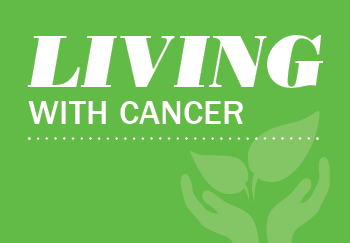 While long-term exposure to the sun’s harmful rays can pose health risks, going through chemotherapy can make your skin even more sensitive to the sun.
While long-term exposure to the sun’s harmful rays can pose health risks, going through chemotherapy can make your skin even more sensitive to the sun.
Chemo causes your body to more easily absorb the sun’s ultraviolet radiation, a side effect known as drug-induced photosensitivity. Here’s what you need to know about chemo and sun sensitivity, and how you can protect yourself.
Why Does Your Skin React to Cancer Treatment?
Most people who develop photosensitivity from chemo experience phototoxic effects, according to Chemocare.com. Within five to 20 hours after sun exposure, you may experience a severe sunburn, including redness, swelling, blistering, weeping and peeling.
Less common side effects are photoallergic reactions, where the above symptoms can occur or spread to skin that wasn’t directly exposed to the sun.
In rare cases, chemo can cause a sunburn to reappear, often with worse symptoms, if the drugs are given one week after the initial sunburn. This photosensitivity effect is known as UV recall reaction.
Chemo and Sun Sensitivity: Are You at Risk?
Not all chemo drugs put you at risk for photosensitivity. Some drugs used to manage cancer treatment side effects, such as steroids or certain antibiotics, can also increase your risk of photosensitivity. Ask your cancer care doctor which medications in your cancer treatment plan contribute to sun sensitivity.
Certain cancer drugs used to treat breast cancer affect the nerve endings in your skin, which can affect your skin’s overall sensitivity, according to BreastCancer.org. Your skin may be painful to the touch or might even feel numb. Being in the sun can make sensitive skin feel worse.
Chemo and other cancer treatments can also make your skin more sensitive to lotions and creams. The same goes for sunscreen. Even if you don’t have an allergy to sunscreen, you might find you now experience a skin reaction with products you once used.
Along with photosensitivity, chemo can make you more sensitive to warm weather, according to the National Comprehensive Cancer Network (NCCN). Heat can exacerbate hot flashes and fatigue brought on by chemo and other cancer treatment.
Steps to Protect Your Skin
During the summer months, more of your skin can be exposed to the sun, but you can experience sun sensitivity throughout the year. Being at high altitudes, such as in mountain states, can put your skin at risk of sun damage. In winter, the sun’s rays can reflect off the snow; it’s why skiers get sunburns.
Regardless of the time of year or whether you are photosensitive, you need to take steps to protect your skin from the sun, both during chemo and after. Exposure to the sun’s harmful rays is the biggest risk factor for skin cancer, which is the most common form of cancer in the United States, according to the Centers for Disease Control and Prevention.
- Apply sunscreen daily to all exposed skin even on cloudy days. If chemo causes hair loss, be sure to apply sunscreen to your scalp, too. The American Academy of Dermatology recommended using a broad spectrum sunscreen with a sun protection factor (SPF) of 30 or higher.
- Limit or avoid outdoor activities in full sun during peak sun hours, between 10 a.m. and 4 p.m.
- Seek the shade. For outdoor events, look for overhangs or patio umbrellas. You can also carry a sun umbrella.
- Cover up exposed skin. Use a wide-brimmed hat to protect your neck and scalp. Wear long-sleeved shirts and pants in tight-woven fabrics. UV rays can reach your skin through loosely woven clothing, according to the Skin Cancer Foundation. The foundation recommended clothing with built-in sun protection, known as an ultraviolet protection factor (UPF). Your cancer center may sell some items, such as hats, with UPF.
- Avoid tanning salons, which also increase your risk of skin cancer.
- Protect your eyes with UV-blocking sunglasses. Chemo can also make your eyes more sensitive to the sun and cause other vision changes, such as the development of cataracts. Sun exposure further increases your risk of cataracts.
- If radiation therapy is part of your treatment plan, take extra precautions. Areas that received radiation will be more sensitive to sunburn for a year following treatment, according to the NCCN.
- Stay hydrated to beat the heat of the sun.
If you do get a sunburn, use a cool, wet compress to reduce inflammation. Your cancer care doctor can also prescribe topical ointments to help with healing and itching. In severe reactions, they may prescribe an oral corticosteroid.
Sun sensitivity from chemo is usually only temporary. Once treatment ends, photosensitivity goes away but may take several months.


Does
the information about sun exposure also apply to patients who have had chemo and radiotherapy and who are now on herceptin?
Also, how about netirinib ?
Thank you,
Kind regards ,Carole